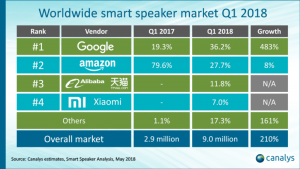If automatic biometric, device, and behavioral logins become as commonplace as social logins, marketers will have to up their game.
To marketers, logged-in users are the online equivalents of gold.
They have definitive user profiles, even if their real-life identities are sometimes anonymized as they work their ways across the marketing ecosystem. With logged-in users, marketers don’t need to layer on possible behaviors, attributes, or purchase histories, or make suppositions about their offline lives, as they do with their unlogged fellow travelers.
Now, imagine a connected world where you are automatically logged in by your body, your behavior, or your device.
If a large number of users can login without remembering and using usernames/passwords, how will so much “gold” affect digital marketing?
The most likely marketing impact, Gigya senior vice president Jason Rose told me, would be major step-ups in the quality and use of personalization.
His company is known for its ecosystem supporting social logins, where a website asks if you want to login with, say, your Facebook, Twitter, or LinkedIn credentials. Social logins save time, although the assumption is that you are already logged into one of those social sites. Gigya has also been investigating biometric logins, including Apple’s Touch ID.
Social logins can be useful to sites, because the user can be accompanied by his or her public profile on that particular social network. Websites are supposed to request your permission for which parts of your public profile you want accessible by the new site, although I find that those consents are not consistently presented.
Nevertheless, this kind of login is popular. Rose said that “a third of users who are offered social logins take it.” On the other hand, he reports that half of those who have forgotten their password choose to simply skip logging in, instead of employing password retrieval.
“Frictionless Logins”
Given that usernames and passwords are what Rose describes as “a critical moment of friction,” a variety of developments are challenging the domina
(76)










